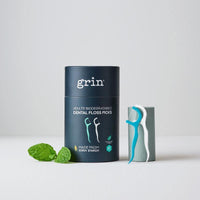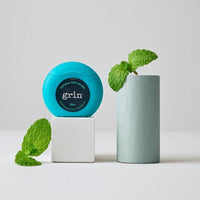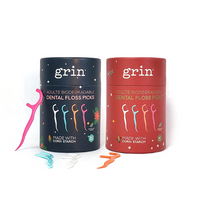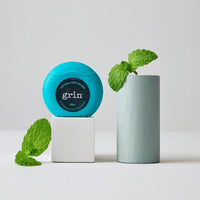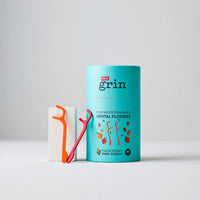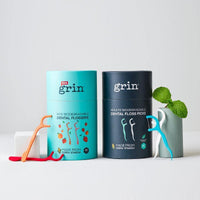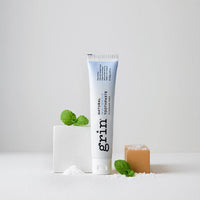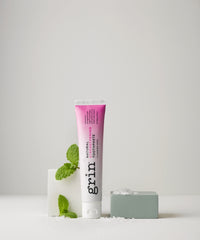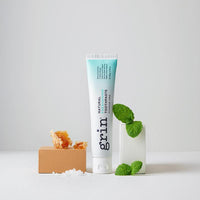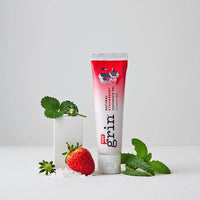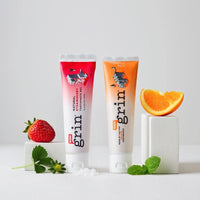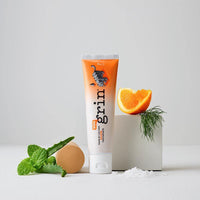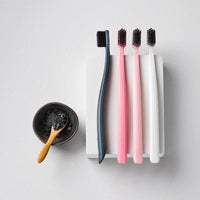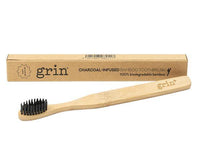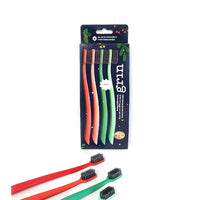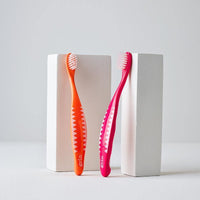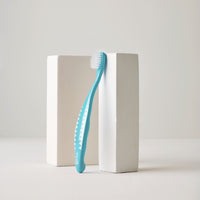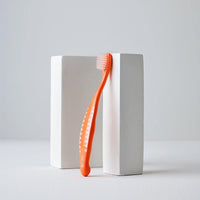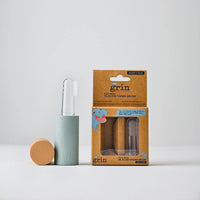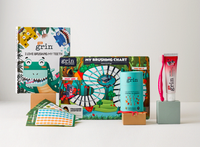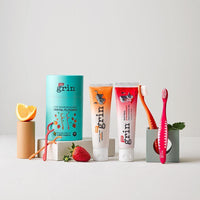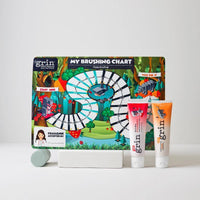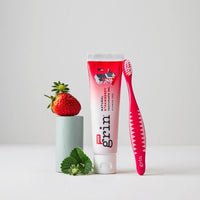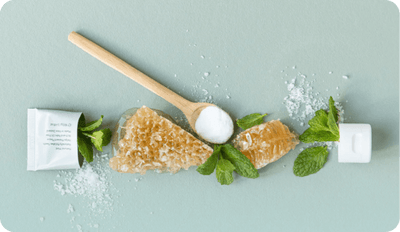What Oral Care Products to Choose for Your Kids at What Stage?
Have you ever felt overwhelmed when walking down the oral care aisle? If you answered yes, believe me when I say you are not alone. We can all acknowledge the overabundance of oral care products and options available to purchase in stores worldwide. While it is nice to have so many choices that help improve or maintain a healthy mouth, it is also easy to become overwhelmed by fancy marketing. This blog post is intended to serve as a guide in helping you choose the right oral care products for your child during their growth and development.

You should begin caring for your baby's oral health as soon as they are born, meaning well before the first tooth appears.
Good oral health for a baby means healthy gums and soft tissues. Luckily, you do not need much when it comes to taking care of your littlest one's oral health other than the correct information.
There is no doubt that parenting is hard, and adding even one more step to a routine can feel like too much. However, establishing an oral care routine for your 0 to 6-month-old can be as easy as 1, 2, 3, by following these 3 recommendations:
- Wipe your infant's gums and soft tissues (inside of cheeks and lips) after feedings with a wet washcloth wrapped around your index finger. This will help reduce the amount of oral bacteria present.
- Reduce the risk of transmitting cavity-causing bacteria to your baby by not sharing utensils or cleaning a pacifier with your own saliva.
- Avoid putting your baby to bed with a bottle. Bottles should only contain breastmilk, formula, or milk, and infants/babies should finish the bottle before bed.
By wiping your infant's gums as early as birth, you are helping introduce them to having someone's fingers in their mouth. This may help your child feel more at ease once they have teeth and require toothbrushing and routine dental visits.

6 to 12 months:
During this stage of growth and development, your infant will discover many new things, including their first tooth! The first few teeth often erupt between 6 and 12 months of age. Teething and the eruption of teeth can present with fussiness, excessive drooling, trouble sleeping or staying asleep, and the constant urge to put something in the mouth. Oral care also becomes even more important during this stage as new teeth begin to erupt.
Oral care products that are beneficial during this stage include:
- Your infant's first toothbrush. A silicone-finger brush effectively removes plaque from your infant's first tooth while also serving as a way to clean and massage their gums.
- Your child's first toothpaste.
Infants are developing a palate at this age as they are introduced to new foods, tastes, and textures. Choosing the first toothpaste should be easy. Grin Kids has created a natural option that includes soothing ingredients such as Organic Calendula Oil and plaque fighting Organic Sea Salt, and Aloe Vera extract.
The American Academy of Pediatric Dentistry has researched fluoride safety at this age. It has concluded that children under the age of 2 may use a SMEAR-sized amount of fluoridated toothpaste, especially if they are at a higher risk for developing cavities.
Designated (chilled, not frozen) teething toys
Avoid plastic or liquid-filled teething rings as they can become dangerous to your child's teeth if they break. Look for age-appropriate teething toys to avoid choking hazards.
12-18 months:
It is time to schedule your child's first dental visit! By this age, your child is eating more and moving more. What does that mean for their oral health? You want to instill healthy eating habits and offer foods and drinks that are not high in sugar. In addition, it may be harder to keep your child still enough for a good 2-minute brush.
To help make brushing fun, look for motivating oral care products such as books about brushing to help model a routine for your child
To help make brushing more effective as new teeth begin to erupt, upgrade your child's toothbrush to a soft or extra-soft bristled toothbrush with a small-sized oval head. Grin Natural's extra-soft nylon-bristled toothbrush is sized perfectly for your child's first few teeth.
Toddler Years
As a mother to a toddler, I can attest that these are tough years. However, brushing and flossing should not create more battles. By sticking to a good oral care routine, you are helping set your child up for success when it comes to a healthy mouth. By age 3, all of your child's baby teeth should have erupted, totaling 20. As your child grows, their teeth often come closer together, primarily speaking of the molars. Cavity-causing bacteria love to colonize and stay between closely touching teeth.
- To prevent interproximal decay, add flossing to your child's routine. Floss picks with bright colors can help make flossing fun and effective.
- Create motivation for your toddler when it comes to brushing and flossing by making it a challenge with a sticker chart.

6 to 12 Years
Beginning around age 6, your child may have a loose tooth or has already lost a tooth. This six-year time frame is when your child's baby teeth will exfoliate or "fall out" and new permanent teeth begin to erupt, including your child's first and second permanent molars. As new permanent teeth erupt, it is important to choose a toothbrush that is sized to reach those further back areas.
- Look for a soft or extra-soft nylon bristle brush with a slightly larger oval-shaped head.
- It may be a good idea for your child to start using a mouth rinse around age 6 or as soon as you are comfortable with them "spitting."
- Your child's gums may be sensitive as new teeth erupt and exfoliates. A gentle toothpaste may be necessary to provide soothing relief.
It is important to remember there is more to good oral health than purchasing the "right products." As your child grows and develops, be sure to make healthy eating fun. Limit a diet high in sugar to help reduce the chances of cavities. Always encourage brushing in the mornings and evenings. Parents should continue to assist with brushing and flossing until their child is approximately 8 or 9 years old. Routine dental checkups are encouraged at least every 6 months, beginning as early as age one.
Written by: Kristen Cockrell, RDH, MSDH
Kristen is a Pediatric Registered Dental Hygienist with a passion for preventive dentistry and oral health education. In addition to working full-time as a hygienist and mother to two young boys, Kristen is an oral health expert with Grin Natural.
